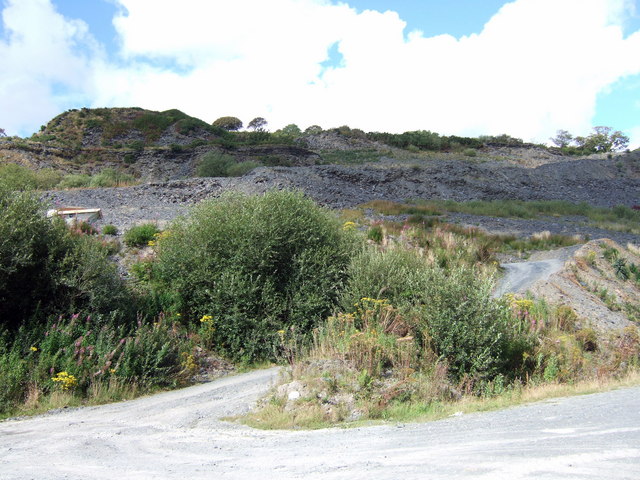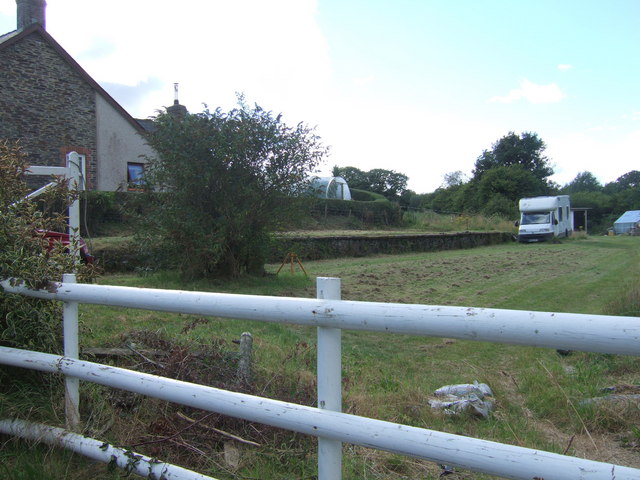Glogue on:
[Wikipedia]
[Google]
[Amazon]
Glogue () is a hamlet and
 Glogue quarry was a
Glogue quarry was a
 The railway line was further extended to in October 1874, via . In 1877 the name was changed to the Whitland & Cardigan Railway and the extension to opened on 1 September 1886. The
The railway line was further extended to in October 1874, via . In 1877 the name was changed to the Whitland & Cardigan Railway and the extension to opened on 1 September 1886. The
post town
A post town is a required part of all postal addresses in the United Kingdom and Ireland, and a basic unit of the postal delivery system.Royal Mail, ''Address Management Guide'', (2004) Including the correct post town in the address increases ...
, north of Llanfyrnach
Llanfyrnach () is a village and parish in Pembrokeshire, Wales. The village is in the electoral ward and community of Crymych. The village of Crymych and the hamlets of Hermon, Glandwr and the eastern part of Pentre Galar are in Llanfyrnach par ...
, in the community
A community is a social unit (a group of living things) with commonality such as place, norms, religion, values, customs, or identity. Communities may share a sense of place situated in a given geographical area (e.g. a country, village, tow ...
of Crymych
Crymych () is a village of around 800 inhabitants and a community (population 1,739) in the northeast of Pembrokeshire, Wales. It is situated approximately above sea level at the eastern end of the Preseli Mountains, on the old Tenby to Cardiga ...
in the east of the county of Pembrokeshire
Pembrokeshire ( ; cy, Sir Benfro ) is a Local government in Wales#Principal areas, county in the South West Wales, south-west of Wales. It is bordered by Carmarthenshire to the east, Ceredigion to the northeast, and the rest by sea. The count ...
, Wales.
It was the site of slate quarrying from the 18th century; the industry employed over 80 men when the railway came to the area in the 19th century and improved distribution.
Quarrying ended in 1926 and the railway closed in 1962.
Glogue Farm is just north of the settlement, in Clydau
Clydau (sometimes Clydaï or Clydey) is a community and parish in Pembrokeshire, Wales.
Name
The meaning of the Welsh placename is uncertain, although the church is now dedicated to St. Clydaï, an alleged daughter of Brychan.
History
During the ...
community.
Glogue Quarry
 Glogue quarry was a
Glogue quarry was a slate quarry
The slate industry is the industry related to the extraction and processing of slate. Slate is either quarried from a ''slate quarry'' or reached by tunneling in a ''slate mine''. Common uses for slate include as a roofing material, a flooring ma ...
in Glogue. Worked from the late 1700s, by the mid-1800s it was owned by John Owen, who wanted to make higher profits by improving his distribution. This led to the construction of the Whitland and Cardigan Railway
The Whitland & Cardigan Railway was a long branch line in West Wales. It was built in two stages, at first as the Whitland and Taf Vale Railway from the South Wales Main Line at Whitland to the quarries at Glogue. It opened in 1873, at first onl ...
. The advent of the railway lead to Owen expanding his workforce to over 80 men.
After sale to a local consortium, the quarry was worked until 1926.
Transport
 The railway line was further extended to in October 1874, via . In 1877 the name was changed to the Whitland & Cardigan Railway and the extension to opened on 1 September 1886. The
The railway line was further extended to in October 1874, via . In 1877 the name was changed to the Whitland & Cardigan Railway and the extension to opened on 1 September 1886. The Great Western Railway
The Great Western Railway (GWR) was a British railway company that linked London with the southwest, west and West Midlands of England and most of Wales. It was founded in 1833, received its enabling Act of Parliament on 31 August 1835 and ran ...
took over the working as of that date and three locomotives were added to stock although the complete undertaking was not purchased until 1890.
The line was noted for its rural nature, with the railway passing through small centres of population, with attractive scenery and over severe gradients. All trains going north stopped at Glogue to take on water, before attempting the climb to Crymych and beyond to the summit towards Boncath
Boncath is a village, community and postal district in north Pembrokeshire, Wales, about west of Newcastle Emlyn.
The village stands at a cross-roads linking the nearby settlements of Newchapel (''Capelnewydd''), Eglwyswrw, Blaenffos and Bwlchy ...
. For many in the area, the line was the focus of the local community, gaining the nickname the Cardi Bach
The Whitland & Cardigan Railway was a long branch line in West Wales. It was built in two stages, at first as the Whitland and Taf Vale Railway from the South Wales Main Line at Whitland to the quarries at Glogue. It opened in 1873, at first onl ...
.
The line was closed to passenger traffic on 8 September 1962, the last train being the 5.45pm Cardigan Mail.
References
{{authority control Villages in Pembrokeshire